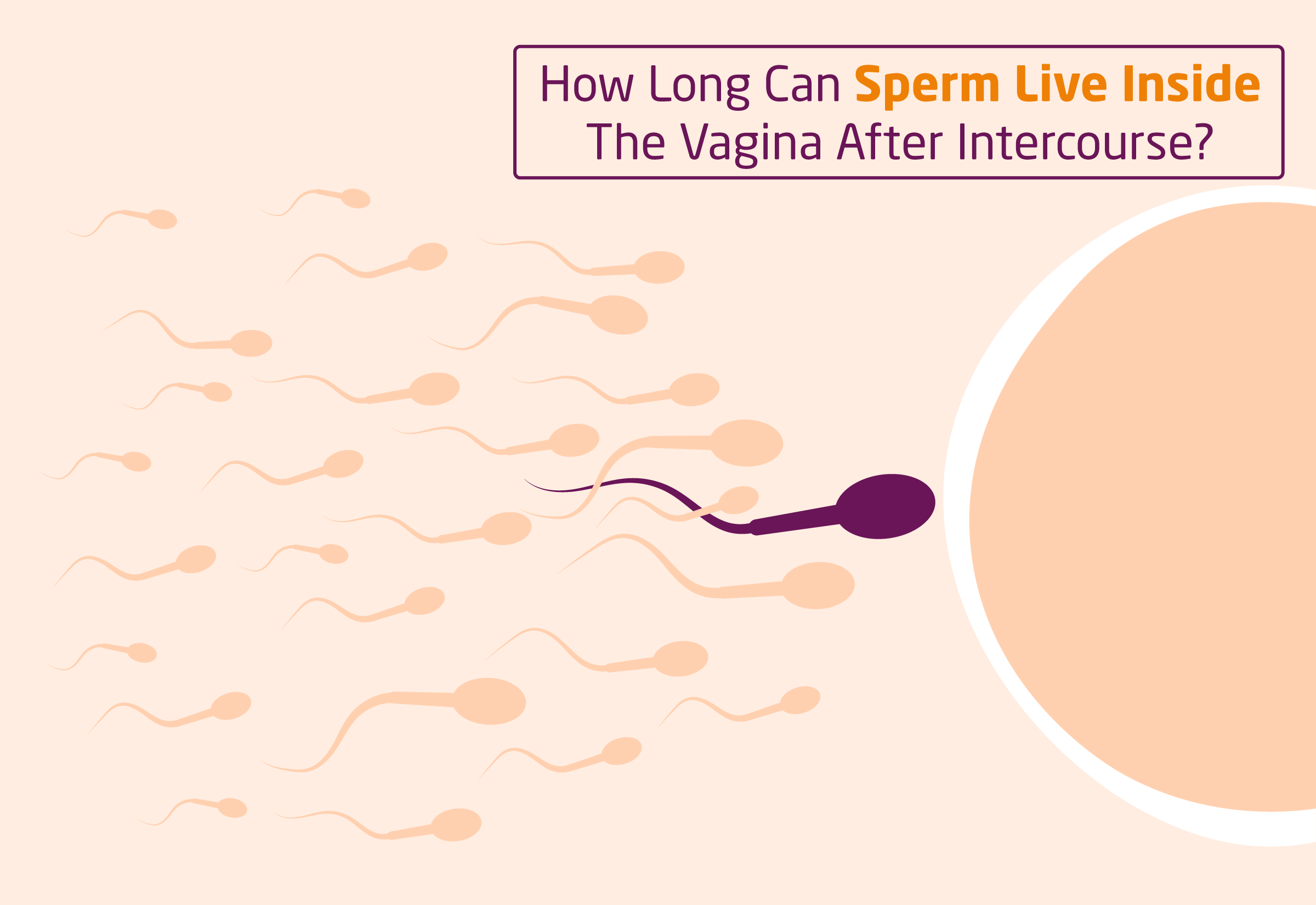How Long Can Sperm Live Inside The Vagina After Intercourse?
A healthy sperm can survive for a few hours to five days following sexual activity. The sperm’s ability to survive inside the vagina is entirely dependent on its surroundings. The sperm’s longevity is influenced by the characteristics of the woman’s uterus, vagina, and fallopian tubes.
How Long Does Sperm Live?
Sperm is a crucial component of fertility and pregnancy, and its ability to survive after ejaculation entirely depends on its environment.
Inside the vagina: During three to five days, sperm inside the vagina can survive in cervical mucus or the upper vaginal canal, allowing fert lisation to proceed as long as the sperm is still alive. In order to account for the five days before ovulation and the actual day of ovulation, the fertile window is six days long. An egg has a 24-hour lifespan after being released.
Outside of the body: Sperm can survive in semen for up to a few hours outside the body because they need specific levels of warmth and humidity to survive. When semen is frozen, sperm can be kept for weeks or even years.
What role does sperm motility play in pregnancy?
The sperm enters the vagina during intercourse and travels via the cervix and into the uterus after ejaculation. After that, uterine contractions assist in directing the sperm towards your fallopian tubes.
In just a few minutes, the first sperm may enter your tubes. The sperm’s trip is made simpler the closer you are to ovulation.
Your cervical mucus needs to be favourable for pregnancy to happen. The ideal mucus has the consistency of an egg white. The trip is significantly more difficult if your cervical mucus is thick or dry.
When attempting to get pregnant, sperm count is a concern for many couples, although it only accounts for a portion of male fertility.
The capacity of the sperm to swim correctly is referred to as “sperm motility”. When it comes to getting pregnant, motility can be just as important as sperm count. Pregnancy cannot occur if the sperm cannot reach the egg.
Couples have a number of options to consider if motility is a contributing issue in infertility. IUI decreases the requirement for sperm to swim from the vagina via the cervix as the motility is increased after the semen sample is prepared for IUI and the travelling distance is reduced as the semen sample is placed directly within the woman’s uterus.
With IVF-ICSI, the sperm is injected into the egg and the embryo is grown in the lab before inserting it in the womb.
What’s the role of frozen sperm in IUI and IVF?
Both IUI and IVF are compatible with both fresh and frozen sperm. For these procedures, frozen sperm may be used for a variety of reasons, including the use of donor sperm and the preservation of fertility for a male with cancer.
Even while sperm that has been frozen can last for a very long period, some people think that when it is thawed, its integrity may be damaged. Although, research suggests that at least when utilising IVF and ICSI, frozen sperm may be equally as effective at generating conception as fresh sperm.
